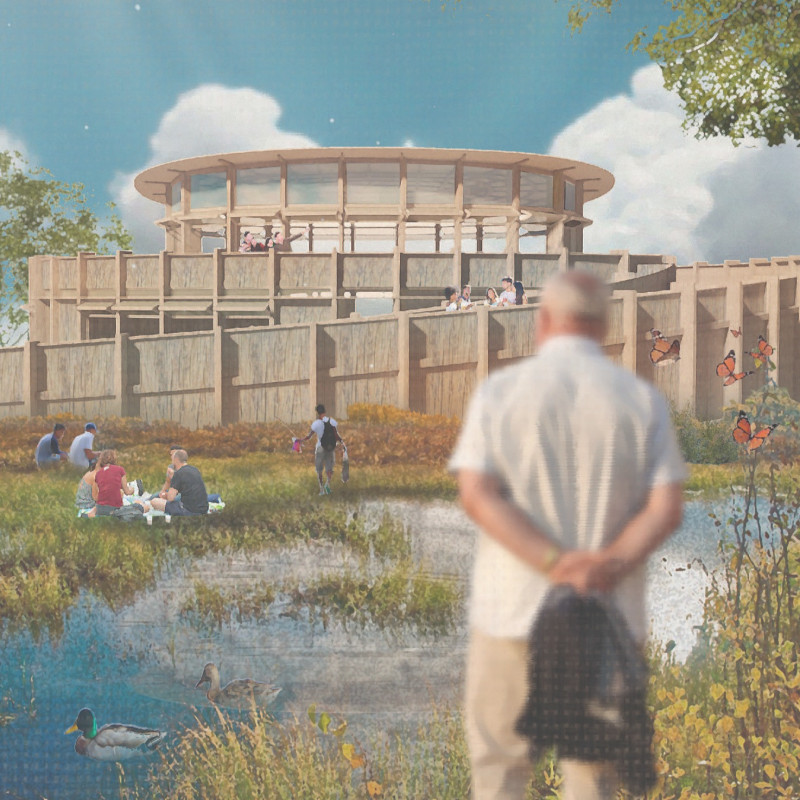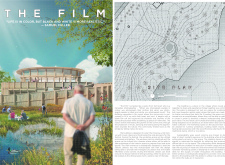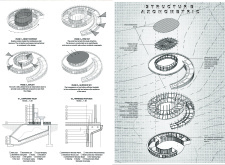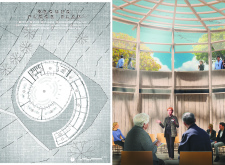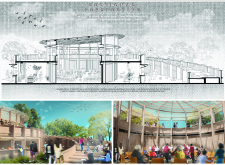5 key facts about this project
The Film is located in Proença-a-Vel, an area known for its lively cultural festivals. The design focuses on creating a space that encourages community interaction and cultural activities. Inspired by the idea that photography captures the inner essence of people, the building serves as a platform for residents to engage with each other and their surroundings.
Community Spaces
The layout includes a multipurpose hall, designed to facilitate easy movement for visitors. This space can be used for various events, serving as both a gathering area and a venue for cultural exhibitions during the festival. Nearby workshop areas support traditional performances and food-related activities, promoting a deeper connection to the community’s cultural heritage.
Public Interaction
A public patio is part of the design and is meant to foster social interactions among residents. The space also has the potential to function as an amphitheater, accommodating larger gatherings and outdoor performances. This integration of public areas positions the building as a central gathering point, encouraging conversations and connections.
Sustainability Features
Sustainability plays a significant role in the design, highlighted by the use of composting toilets that reduce water usage. A rainwater harvesting system is also included, enhancing the building's efficiency in resource management. The choice of materials reflects a commitment to sustainability. Wood columns are used to manage sunlight while providing necessary privacy for users.
Enhancing Natural Light
The design incorporates a shading device aimed at maximizing natural light within the space. This element balances the need for daylight with user comfort. Bifold windows allow for cross-ventilation and provide protection from outdoor elements, making the environment comfortable for those inside.
The roof deck serves as both an observation area and a rainwater collection feature. By providing an additional usable space, it enhances the building’s overall functionality. The roof connects the architecture with the surrounding landscape, inviting nature into everyday community life.


